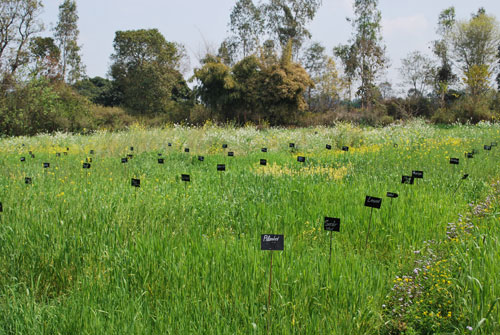|
|
The South
Asian Life & Times - SALT |
|
|||
|
Home Cover Story
Dr
Karan Singh's
59th National Film
'Rang'
Colors of
Mike Pandey wins
SaMaPa Music
|
|
||||
|
Organic farming - India’s
Real Green Revolution All about
-
responsible stewardship of the land
-
preservation of rural life
-
good food grown without chemicals
Organic
foods, once considered the realm of the left-leaning food elite, have at
last made inroads into the public domain globally. Sales across Europe and
the United States are robust (organic food sales in the United States have
grown by 17 to 20 percent a year for the past few years, while sales of
conventional food have grown more slowly, at about 2 to 3 percent a year),
and growing rapidly elsewhere. Recently, Etihad Airways introduced organic
inflight dining for its First Class menus, sourcing fresh organic produce
daily from the Abu Dhabi Organics Farms, the first internationally certified
organic farming initiative in the UAE.
In India,
organic foods are now available in select outlets in metro cities, primarily
because of greater demand – a result of better awareness of their potential
health benefits, and better organization.
But
the journey to the table has not been easy – especially so in India. The
agricultural system in India has been in a mess for a while. Drought,
floods, famine and pestilence have been part of India's farming story. But
cancer deaths and farmer suicides are recent.
The
‘Green Revolution’
of the 60s
and 70s brought unprecedented harvests but left us wondering if the cancer
trail resulting in its wake is indeed linked to the heavy use of chemicals
in the fertilisers and the pesticides that it promoted. Soon after came the
tsunami of genetically modified (GM) crops, and riding its crest were the
unethical Big Agro-companies that produced GM seeds and were known for their
ruthless and intimidating tactics against small farmers.
In India, this wave brought a harvest of fear and debt and left
thousands of farmer suicides in its wake. Organic
farming is perhaps the answer not just to get the farmers out of the mess of
spiralling debt from insanely priced inputs to grow genetically modified
crops but it is the only way to sustainable farming and healthy, nutritious
food. Never
before has the relevance of organic practices as a solution to many of the
challenges faced by the farmers in India been more apparent than now.
Organic agricultural practices, which were once the traditional practices,
have improved the condition of India's farmers by providing greater profit
and sustainability. Their incomes and yields have risen. “Not only are the
incomes of organic farmers soaring – by 30% to 200%, according to organic
experts – but their yields are rising as the pesticide-poisoned land is
repaired through natural farming methods.”
|
|||||
|
Copyright © 2000 - 2012 [the-south-asian.com]. Intellectual Property. All rights reserved. |
|||||
